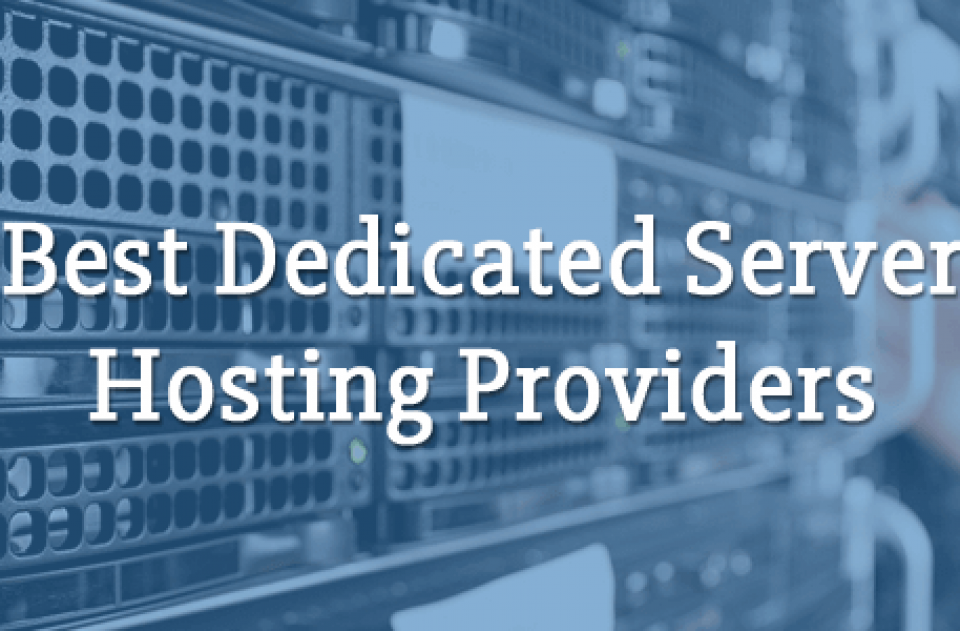
The market offers an abundance of dedicated servers with various configurations and specifications, which makes the choice as challenging as never before. When it comes to the choice of hosting solutions, it’s better to avoid mistakes, because switching to another provider or solution can be a real pain in the neck, especially for well-developed websites and online businesses. In order to save your time and prevent embarrassment, we’ve prepared a detailed guide on how to select a dedicated server for your business based on requirements and characteristics available.
When you don’t know which solution to choose, performance and redundancy should be prioritized. These depend on a few important factors. Here you will find description of seven key characteristics of dedicated servers – all of them are vital for successful business.
1. Bandwidth
Bandwidth shows the volume of data transferred per unit of time, e.g. the speed of Internet connection. As a rule, it’s expressed in bits per second: 100 Mbps means that a server can transfer data at the rate of 100 Megabytes every second. When it comes to advanced powerful dedicated servers, the average bandwidth numbers are a bit different: these solutions come with networks with 2 Tbps capacity and more.
If you’ve resolved to order a dedicated server, it means your project has already gained pretty much popularity, and, most likely, you need to serve thousands of visitors per day. Therefore, it’s essential to have enough bandwidth at your disposal. Calculate an average amount of bandwidth your website requires, and opt for a slightly larger number. Ideally, websites with several million users per month should opt for minimum 100 Mbps Tier 1 bandwidth servers. Alternatively, you can try unmetered dedicated servers with lower bandwidth. Tier 1 carriers are also crucial: these ensure stable connectivity, no matter what happens.
2. Network Uptime
Network is a parameter that shows how stable the access to your website is. For instance, if a server has uptime of 98%, it means that it can be inaccessible for a few minutes per month. Although it doesn’t sound so bad, you never know how downtime can affect your project. When its website was out of reach for a few minutes, Amazon lost several million dollars! Reputable online businesses cannot afford being offline – it can hurt customer loyalty and conversions to a great extent. Therefore, maximum network uptime possible is a must for every respectable website and every respectable provider. Do not agree for anything lower than 99% uptime. Ideally, you need a dedicated server with uptime 99,9%.
Also read the fine print in SLA, or ask the provider whether downtime is compensated. Some worthy dedicated server providers give money back guarantee (in most cases you need to claim it, though) – this is the way to go!
3. Operating System
When users choose dedicated servers, one of the first things they should consider is operating system. There are two main options available: Windows and Linux dedicated servers. Since Linux is an open source platform, it is maintained and supported better. CentOS or Ubuntu Linux can be a great option for those who need a versatile dedicated server that supports the vast majority of software. However, some applications work on Windows OS only (ASP, ASP.NET), and if you need them, you have no choice. Besides, if you’re used to navigating Windows interface, such dedicated server can be more convenient in exploit.
4. Tech Support
Competent and permanently available technical support is an inevitable part of decent service. No matter what you choose – managed or unmanaged dedicated server – you should always have the opportunity to address provider’s customer support agents and have your questions answered immediately, or as soon as possible. Assistants should be available on 24 / 7 / 365 basis, because technical problems tend to arise out of the blue when least expected. There should be multiple channels for communication – email, call-back, live chat and tickets (the last option is for the most patient ones). Don’t be afraid of asking any questions you have: that will help you to understand whether specialists are experienced and qualified.
Before concluding contract with the provider, find out which kinds of tech support services are included. You will definitely need:
- server reboot;
- regular backups;
- 24/7 real time monitoring (for managed servers);
- powerful cooling and maintenance.
5. Customization and Simplicity of Use
Another thing making dedicated servers perfect for large-scale businesses is the ability to handle a large amount of traffic, because its features can be simply customized to satisfy this demand. Make sure that dedicated server provider gives access to the latest configurations, updates and hardware components. Ideally, you can find an upgradeable dedicated server package, which allows adding more storage or RAM. This way, you won’t need to waste money and efforts to switch to another server.
Although it’s better to find a new, advanced dedicated server right from the start, if you opt for a long-term service, sooner or later you will need to have server hardware replaced. Worthy hosts guarantee free hardware replacement that takes about an hour.
6. Hardware Features
This is the most mind-boggling part of the choice – it’s easy to get lost in multiple numbers and variables. First and foremost, pay attention to server brand: Dell and Supermicro machines with Dell systems are considered to be superb. High performance dedicated servers feature at least 8-16 Gb storage: this is a minimum that you need for your website to be up and running steadily.
As for server drivers, you will need to compromise between cost and efficiency: while SATA servers are cheaper, they process information several times slower than SAS and SSD servers. The last option is considered to be the most advanced, but it can take a bite of your wallet, and these servers are harder to maintain from technical standpoint.
7. Security
Even if your dedicated server is expensive and highly efficient, it may still be prone to failures because of exterior threats – hackers are all around. Therefore, look for such security services as:
- Firewalls;
- Around-the-clock monitoring;
- DDoS protection;
- Antivirus and anti-malware solutions;
- Backup options.
Combined together, these security measures will build up unbeatable security of your dedicated server. Don’t forget about such feature as RAID setup – it guarantees redundancy and helps to save your data. With hardware RAID, a technician can simply replace the disc that went down and restore server functionality in a jiffy. After that, the original hard drive will be copied to the new drive, while your server is online and serves website visitors.
Use this step-by-step guide to seed out dedicated server solutions, and you will find a suitable option that fully satisfies requirements of your project and truly helps to develop it.



comments